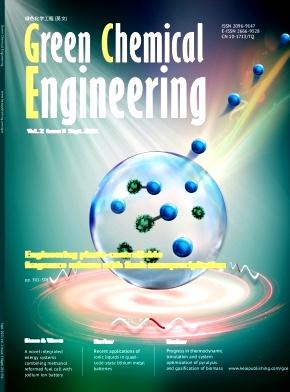低温低剂量电子显微镜下氢键有机框架的分子水平成像
IF 7.6
Q1 ENGINEERING, CHEMICAL
引用次数: 0
摘要
与氢键有机框架(HOFs)结构不均质性相关的基本问题,如控制其功能和生长机制的表面末端和主客体异质结构,仍然是一个关键的知识缺口。这源于缺乏先进的具有分子精度的实空间结构表征工具。通过利用最先进的低温低剂量电子显微镜,这项工作克服了传统技术的光束损伤限制,并在分子水平上阐明了hof的晶体结构、表面末端和主客体结构。实空间观测证实了横向晶体生长符合梯田-边缘-扭结(TLK)模型,但偏离了经典的单体加成机制。相反,我们提出了一种非经典的合作多位点单体添加机制,其中在框架和客体位点同时添加单体最终驱动晶体饰面。本文章由计算机程序翻译,如有差异,请以英文原文为准。

Molecular-level imaging of hydrogen-bonded organic frameworks by cryogenic low-dose electron microscopy
The fundamental problems associated with structural inhomogeneities of hydrogen-bonded organic frameworks (HOFs), such as surface terminations and host-guest heterostructures that govern their functionalities and growth mechanisms, remain a critical gap in knowledge. This arises from the lack of advanced real-space structural characterization tools with molecular precision. By leveraging state-of-the-art cryogenic low-dose electron microscopy, this work overcomes the beam damage limitations of traditional techniques and elucidates the crystal structures, surface terminations, and host-guest structures of HOFs at molecular-level. Real-space observations confirm lateral crystal growth consistent with the terrace-ledge-kink (TLK) model, but deviate from the classical monomer-addition mechanism. Instead, we propose a nonclassical cooperative multisite monomer-addition mechanism, where simultaneous monomer addition at both framework and guest sites eventually drives crystal faceting.
求助全文
通过发布文献求助,成功后即可免费获取论文全文。
去求助
来源期刊

Green Chemical Engineering
Process Chemistry and Technology, Catalysis, Filtration and Separation
CiteScore
11.60
自引率
0.00%
发文量
58
审稿时长
51 days
 求助内容:
求助内容: 应助结果提醒方式:
应助结果提醒方式:


